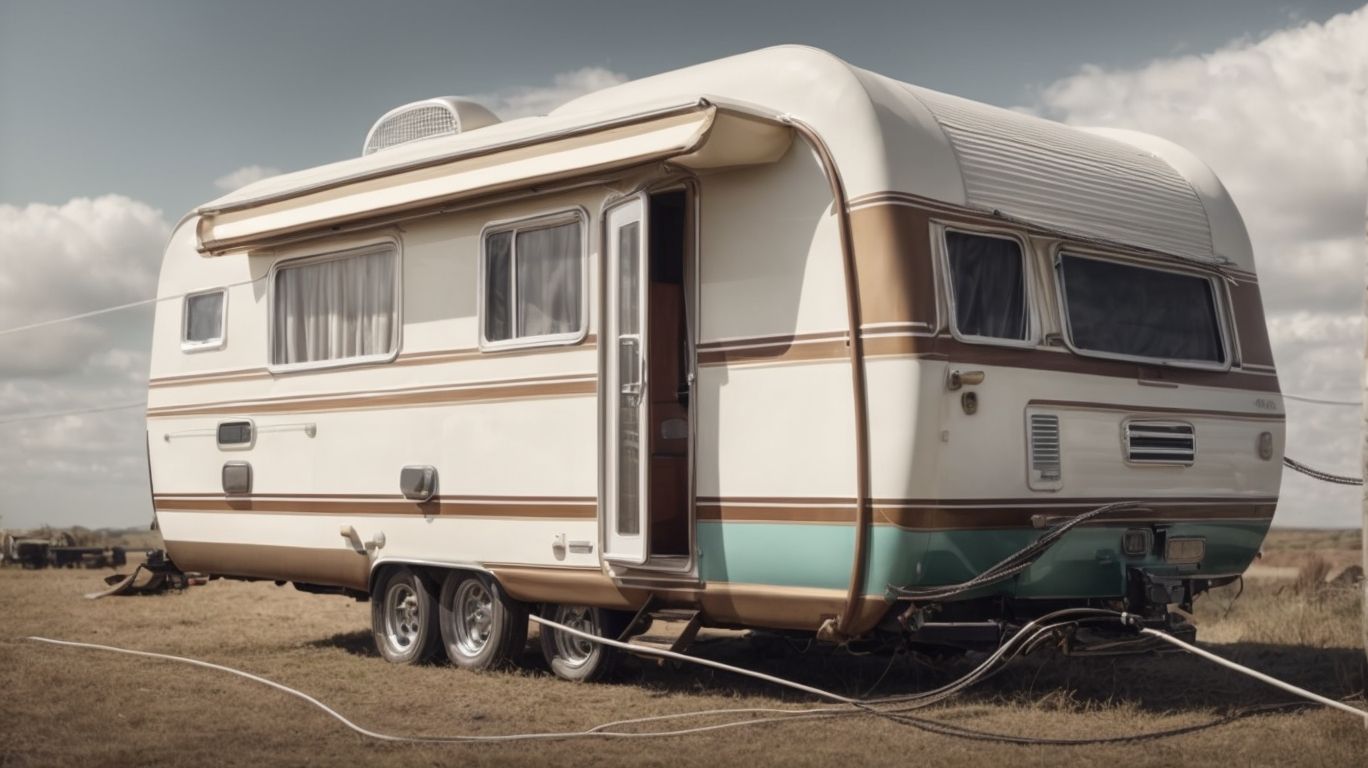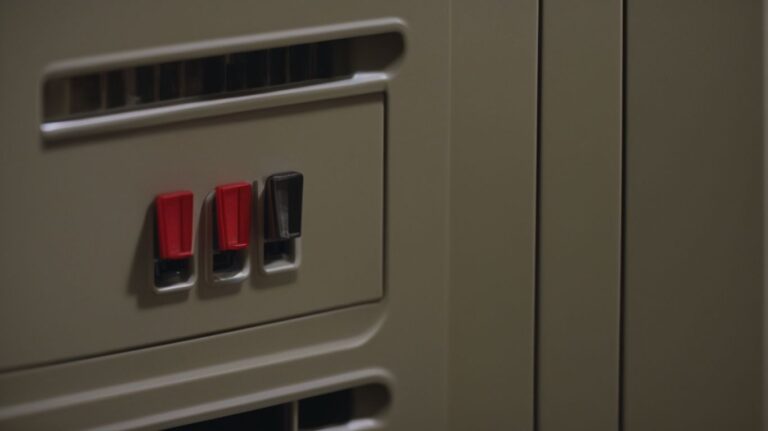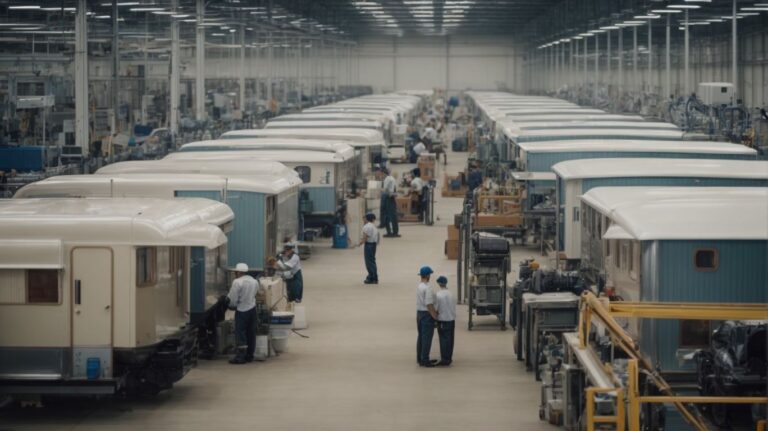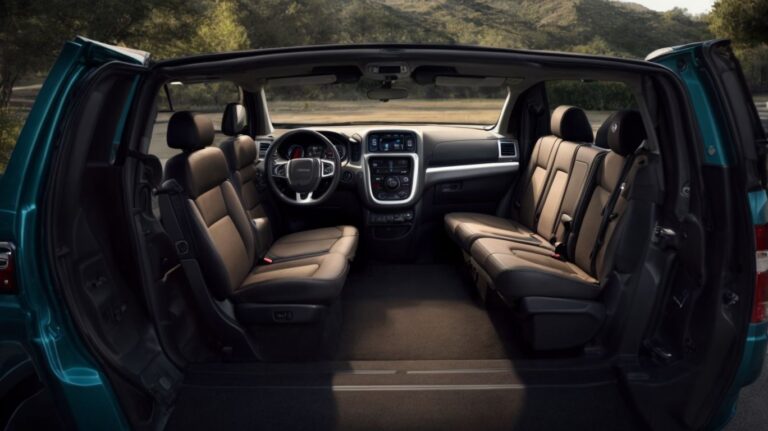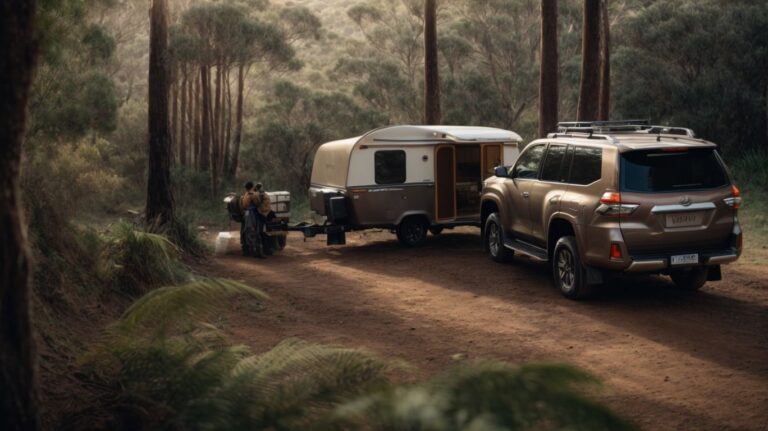Troubleshooting: Why Does My Caravan Keep Tripping?
Is your caravan constantly tripping and causing electrical issues?
We explore the common causes of caravan tripping, such as overloaded electrical systems, faulty appliances, damaged wiring, and faulty circuit breakers.
We provide practical tips on troubleshooting caravan tripping, including checking the electrical system load, inspecting appliances, and testing circuit breakers.
Learn preventive measures to avoid future tripping incidents, such as regular maintenance, proper distribution of electrical load, using quality appliances, and upgrading the electrical system if needed.
If you want to tackle caravan tripping and ensure a smooth and safe journey, keep reading!
Key Takeaways:
What Does it Mean When a Caravan Trips?
When a caravan trips, it means that the electrical supply to the caravan has been disrupted, often due to an electrical fault or overload in the system.
Addressing the issue promptly is crucial to avoid potential damage or safety hazards. Common causes of caravan trips include power surges from external sources, inadequate wiring or connections within the caravan electrics, and appliances drawing more power than the system can handle.
A tripped caravan could lead to vital equipment such as refrigerators or air conditioning units shutting down unexpectedly, risking spoilage of food or discomfort during travels. It’s advisable to have a certified professional inspect the caravan electrics to identify and rectify any faults to ensure a safe and uninterrupted journey.
Common Causes of Caravan Tripping
The common causes of caravan tripping can be attributed to an overloaded electrical system, faulty appliances, damaged wiring, or faulty circuit breakers.
Overloaded Electrical System
An overloaded electrical system in a caravan occurs when the demand for power exceeds the capacity of the electrical supply, leading to potential tripping and safety hazards.
This situation can be dangerous as it increases the risk of fire hazards due to the excessive heat generated by the overloaded circuit. When the wattage drawn by the appliances surpasses what the mains can handle, it puts the entire system under strain, potentially causing equipment damage and electrical malfunctions. The increased current flowing through the wires can lead to overheating, melting insulation, and in severe cases, electrical fires which can spread rapidly within the confined space of a caravan.
Faulty Electrical Appliances
Faulty electrical appliances in a caravan can cause tripping by drawing excessive power or creating short circuits within the electrical system.
When power systems in a caravan encounter overloading due to faulty appliances, they can disrupt the delicate balance of the electrical network, leading to potential hazards such as fires and electrocution. An earth fault caused by a malfunctioning appliance can result in the leakage of electric current to the caravan’s metal structure, posing a serious risk of electric shock to occupants.
To prevent such dangers, it is crucial for caravan owners to conduct regular maintenance checks on all electrical appliances, ensuring they are in good working condition and not risking the safety of the occupants. Simple measures like unplugging appliances when not in use and utilizing surge protectors can significantly reduce the likelihood of electrical mishaps in caravans.
Damaged Wiring
Damaged wiring in a caravan poses a significant risk of tripping as it can lead to electrical faults, short circuits, and insulation breaches, compromising the electrical safety of the vehicle.
One of the most dangerous consequences of damaged wiring in a caravan includes the elevated risk of electrical shocks for those occupying the vehicle. If the wiring is compromised, there is a higher likelihood of exposed wires coming into contact with individuals or water sources, resulting in potentially fatal shocks.
Damage wiring significantly increases the probability of fires within the caravan. Electrical faults due to faulty wiring can easily spark fires, especially when combined with flammable materials commonly found in caravan interiors. It is crucial to regularly inspect the caravan’s wiring to avoid such hazards, ensuring that safety mechanisms like the RCD (Residual Current Device) are in place and functioning correctly.
Faulty Circuit Breakers
Faulty circuit breakers in a caravan are a common cause of tripping as they fail to detect and interrupt electrical faults or overloads, compromising the safety of the electrical system.
Circuit breakers in a caravan are crucial for both the safety and functionality of the electrical setup. By effectively cutting off power when an abnormality is detected, they prevent overheating, short circuits, and potential fires. In essence, these devices act as the guardians of your electrical systems, ensuring that the flow of electricity remains within safe parameters. Without proper functioning circuit breakers, you risk not only damaging your electronics but also endangering the occupants of the caravan. Therefore, investing in high-quality circuit breakers is akin to safeguarding your house on wheels against electrical disasters.
How to Troubleshoot Caravan Tripping
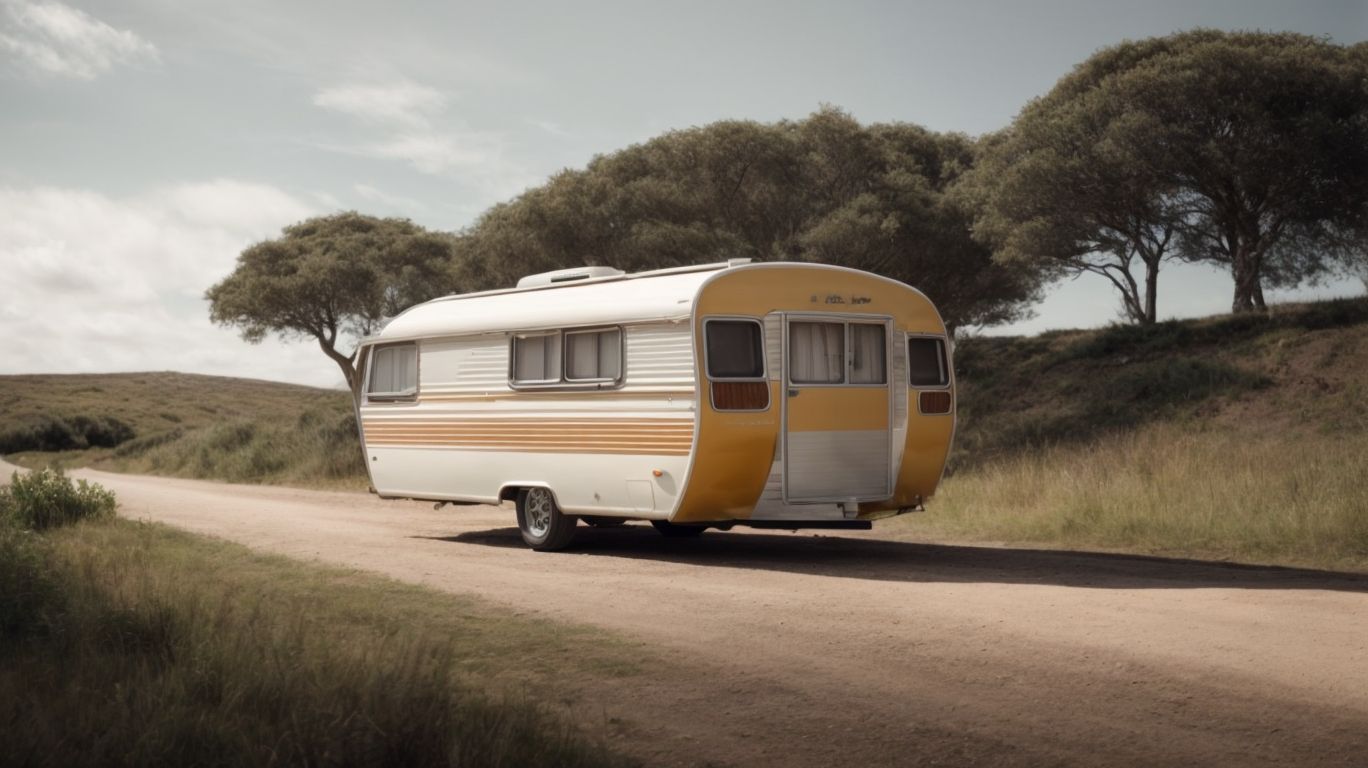
Credits: Motorcaravanning.Com – Albert Lee
Troubleshooting caravan tripping involves checking the electrical system load, inspecting electrical appliances, examining damaged wiring, and testing circuit breakers to identify and rectify the underlying issues.
Check the Electrical System Load
To troubleshoot caravan tripping, start by checking the electrical system load to ensure it is within the safe operating limits and not causing overloads that can lead to potential tripping.
One crucial step in this process is to conduct a comprehensive assessment of all connected appliances and devices to identify power-hungry items. By creating a detailed list and categorizing them based on power consumption, you can prioritize usage and distribute load effectively.
- Use a multimeter to measure the current drawn by each appliance and cross-reference it with the manufacturer’s specifications to avoid exceeding the rated amperage.
- Implement a rotating schedule for high-power appliances, such as air conditioning units or water heaters, to prevent simultaneous operation and reduce the risk of tripping due to sudden spikes in demand.
- Regularly inspect and maintain the caravan’s electrical system, including cables, sockets, and circuit breakers, to detect any signs of wear, damage, or loose connections that could result in faulty connections or short circuits.
Inspect Electrical Appliances
Inspecting electrical appliances in a caravan is essential to identify any faults, damages, or malfunctions that could be causing the tripping issue, ensuring the safe operation of the electrical system.
In terms of ensuring the longevity and efficiency of your caravan’s electrical appliances, regular maintenance plays a crucial role. One important component that should always be checked during these inspections is the transformer, as it is responsible for stepping up or stepping down the voltage to match the requirements of different devices.
Heaters are another vital appliance that needs to be inspected meticulously. By examining the wiring, plugs, and overall condition of the heater, you can prevent potential hazards such as short circuits or overheating.
Check for Damaged Wiring
Checking for damaged wiring in a caravan involves inspecting the electrical cables, connections, and insulation for any signs of wear, tear, or exposure that could lead to electrical faults and tripping.
Modern houses are equipped with advanced technologies and electrical systems that demand top-notch maintenance. In terms of ensuring electrical safety, regular inspections are vital. Ignoring damaged wiring not only risks electrical malfunctions but also poses a serious hazard like fire outbreaks.
A thorough inspection of the wiring in a caravan should include a visual check for frayed wires, exposed conductors, and loose connections. Testing these components using a multimeter can help identify hidden problems before they escalate. It is crucial to address any issues promptly to prevent safety risks and maintain a well-functioning electrical system.
Test Circuit Breakers
Testing the circuit breakers in a caravan involves verifying their functionality, sensitivity, and responsiveness to electrical faults or overloads, ensuring they can effectively protect the electrical system from tripping incidents.
Regular testing of circuit breakers is crucial in maintaining a safe and functional electrical system in a caravan. By conducting routine inspections on these vital protective devices, potential malfunctions can be detected early, preventing major electrical issues. One common method for testing is using a multimeter to measure the current flow and ensure that the breakers trip at the correct amperage levels. Visual inspections for any signs of wear, corrosion, or overheating should be part of the maintenance process.
Preventing Caravan Tripping
Preventing caravan tripping requires regular maintenance and inspections, proper distribution of electrical load, use of quality electrical appliances, and upgrading the electrical system if necessary to ensure safe and reliable operation.
Regular Maintenance and Inspections
Regular maintenance and inspections of the caravan’s electrical system are crucial to identify and address potential issues before they escalate into tripping incidents, ensuring safe and reliable operation.
One of the key areas that should be regularly checked is the condition of the wiring, as faulty wiring can lead to short circuits and electrical faults that pose serious safety hazards.
Inspecting and cleaning the caravan’s electrical outlets and connections can prevent overheating and potential fire risks.
Ensuring that all fuses and circuit breakers are in proper working order is essential to prevent power surges and protect sensitive electronic devices from damage.
Properly Distribute Electrical Load
Properly distributing the electrical load in a caravan involves balancing power usage across different appliances and circuits to prevent overloads and voltage fluctuations that can lead to tripping.
When managing electrical systems in a caravan, it is essential to keep in mind the capacity of the circuit breaker and avoid connecting high-power devices to the same circuit with low-power devices. By spreading out the load evenly, you not only ensure a more stable power supply but also extend the lifespan of your electrical equipment. Optimizing electrical usage can involve simple steps such as using energy-efficient appliances, unplugging devices when not in use, and utilizing natural light to reduce reliance on artificial lighting.
Use Quality Electrical Appliances
Using quality electrical appliances in a caravan reduces the risk of tripping incidents caused by faulty or substandard equipment, ensuring the safety and reliability of the electrical system.
Investing in reliable appliances is crucial as it ensures that the devices can handle the specified voltage and wattage levels without overheating or malfunctioning. High-quality appliances are designed with advanced safety features, such as overload protection and insulation mechanisms, minimizing the chances of electrical faults and potential accidents. By prioritizing durable appliances, caravan owners can enjoy peace of mind knowing that their electrical system is resilient and less prone to unexpected breakdowns or hazards.
Upgrade Electrical System if Needed
Upgrading the electrical system of a caravan may be necessary to accommodate increased power demands, enhance safety features, or replace outdated components that could be contributing to tripping issues.
When considering an electrical system upgrade, one should first assess the power requirements of modern appliances that may be used in the caravan. By installing modern and efficient equipment, not only can you prevent overloading circuits, but you can also ensure a more reliable power supply. Upgrading the system can help mitigate potential safety hazards, such as faulty wiring or inadequate grounding, which are common culprits for tripping incidents. Replacing old appliances and outlets with newer, more energy-efficient models can also lead to cost savings in the long run, making the investment in the upgrade worthwhile.
Frequently Asked Questions
1. Why does my caravan keep tripping the electrical system?
There could be several reasons for this, including overloaded circuits, faulty wiring, or a malfunctioning appliance. It’s important to troubleshoot and identify the specific cause before attempting any repairs.
2. How can I troubleshoot my caravan’s electrical system to find the cause of the tripping?
Start by unplugging all appliances and turning off all lights. Then, plug them in one by one to see if a particular one is causing the trip. If not, check for any damaged wiring or blown fuses. If the problem persists, it may be best to consult a professional electrician.
3. Can an overloaded circuit cause my caravan to trip?
Yes, if you have too many appliances or high-powered devices running at the same time, it can overload the circuit and cause it to trip. Consider using fewer appliances or spreading them out on different circuits to avoid overloading.
4. What should I do if I suspect a faulty appliance is causing the trip?
If you have identified a specific appliance as the cause of the trip, try replacing it or having it repaired. If the appliance is essential for your caravan, have it checked by a professional to ensure it is safe to use.
5. Can a faulty wiring system be the reason my caravan keeps tripping?
Yes, faulty wiring can cause your caravan to trip. It’s essential to regularly check and maintain your caravan’s wiring system to prevent any potential hazards. If you suspect an issue with the wiring, it’s best to have a professional inspect and repair it.
6. Is it necessary to call a professional if I can’t identify the cause of the trip?
If you’ve tried troubleshooting and cannot identify the cause of the trip, it’s best to call a professional electrician. They have the expertise and tools to diagnose the problem accurately and safely fix it.

